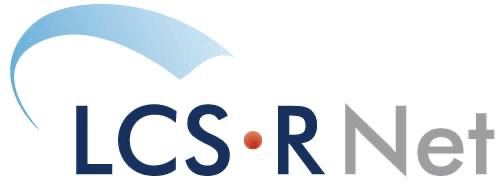ABOUTWhat is LCS-RNet?
The Strategic Research Network for Leveraging Climate Neutral Sustainable Societies (LCS-RNet) is a network of researchers and research institutions closely involved in national climate policies. LCS-RNet was established from a Japanese proposal at the 2008 G8 Environment Ministers’ Meeting. (In 2021, the network was renamed from its original name, the International Research Network for Low Carbon Societies.)
The network is led by research institutes from five countries (Japan, Germany, France, Italy and the UK) and has contributed to international policy processes by sharing and disseminating research results, providing feedback to national policy processes, and supporting efforts by various actors to realise a climate-neutral society.
MISSIONAim of the network
- To promote research on climate-neutral societies internationally, contribute to international policy processes and provide feedback to national policy processes through the sharing and dissemination of research results, in order to complete the transition to a climate-neutral society within the next half century.
- To promote dialogue between the research community and various stakeholders, such as policy makers, businesses and citizens, and to encourage efforts by various actors to realise a climate-neutral society.
VALUEAdded value of the network
As a platform for the scientific community to promote policy development and implementation towards a climate-neutral society, LCS-RNet differs from other similar organisations and associations with the following added values.
- Comprehensive research capacity to facilitate the transition to a climate-neutral society: LCS-RNet is a network of researchers and research institutions facilitating solution-oriented, multilateral and cross-sectoral research.
- Close cooperation with policy formulation and implementation: the participating institutions of LCS-RNet work closely with central and local governments, enabling timely input from the research side to be reflected in policy.
- Policy cooperation with international activities: LCS-RNet participating organisations have strong links with the international community, including international organisations such as UNEP and UNFCCC, development aid agencies such as the World Bank and Asian Development Bank, producing a number of researchers involved in the IPCC.
- Accumulation and dissemination of scientific knowledge for a climate-neutral society: LCS-RNet functions as a research community by promoting close cooperation, collaboration and knowledge exchange within the network, and at the same time, has recently been focusing on the dissemination of scientific knowledge to stakeholders in an easily understood manner.
HISTORYTrajectory of the network
LCS-RNet has discussed pressing issues in a flexible manner, changing the nature of the network as the occasion demands. This trend is evident in the annual meetings that have been held so far.
Phase I activities (2009-)
LCS-RNet has been promoting knowledge exchange on climate policies through its annual meetings, conducting research on common challenges, developing outputs, making policy proposals, and reflecting those into policies in various countries. Discussions at annual meetings are compiled into synthesis reports and special issues of the journal, and these are presented on a country level and to international organisations and stakeholders (including UNFCCC/COP, academia, and policy communities), as well as reflected in policies by researchers in each country.
Phase II activities (2014-)
The second phase focused on the response to COP21, an important turning point for global climate policy. The seventh annual meeting, held in Paris, France, focused on key agendas such as energy systems, cities and land use, and cooperation with developing countries, with climate finance as a key issue that cuts across all three of the above. The views from the discussions at the annual meeting were also summarised in the LCS-RNet statement ‘ COP21: A moment of truth for climate and sustainable development ‘.
Impact of the LCS-RNet statement:
The statement is based on positive and integrated research into the ‘transition to a low-carbon society’ by a collaboration of researchers and research institutions with deep practical involvement in national policies, and was endorsed by 213 signatories from 47 countries, including Nobel laureates, former ministers, IPCC chairs, co-chairs of working groups and report authors. It was submitted to the French Government and introduced and discussed at several side events during COP21.
The statement called for
- Economic transformation based on ‘carbon pricing’ in its various forms, adding social, economic and environmental values;
- The effective use of ‘climate finance’ for developing countries through a positive interpretation of the principle of ‘common but differentiated responsibilities’;
- Strengthening capacity building in developing countries and orienting international finance to promote technology transfer;
- Triggering a “new industrial revolution” with huge investments in urban systems, energy systems and other areas necessary for major social transformation;
- The importance of linking these various initiatives to new economic growth based on the real economy.
Phase III activities (2016-)
With the remarkable success of COP21, the world took a major step towards ‘action’ to achieve a low-carbon and then a climate-neutral society. This is reflected in the discussions at the subsequent annual meetings in Germany (2016), UK (2017), Japan (2018) and Italy (2019). These annual meetings focused on
- What policies and measures should be taken in response to the major non-linear and disruptive changes that will occur in the future;
- How to align strategies aimed at economic development and wealth enhancement with international investment programmes aimed at energy transformation and climate mitigation and adaptation;
- How to address the challenges of climate change, particularly in urban and basic industrial sectors, and how to ensure consistency between policies and the sustainable development goals (SDGs) as a whole;
- The increasingly important role of science in providing evidence-based solutions and appropriate action strategies.
Phase IV activities (from 2021)
As it becomes increasingly recognised that transitions must be completed within the first half of this century to achieve a climate-neutral society, the research community is expected to step to the forefront of the transitions and find solutions by translating research findings into actual policy and behaviour change.
LCS-RNet is also moving towards the introduction of a ‘Common Agenda Approach’, where participating institutions propose topics of interest to each other and promote joint research and activities within the network, and from 2021 onwards, arrangements are being made to set up the annual meeting as a forum for sharing and disseminating such research and activities. Arrangements are being made to set up the annual meeting as a forum for sharing and disseminating such research and activities from 2021. For reference, the 2021 annual meeting held four sessions on industrial decarbonisation, on employment for a climate-neutral society, on international cooperation and on finance, under the theme ‘Accelerating action to achieve a climate-neutral and sustainable society’.
 Leveraging a Climate-neutral Society
Leveraging a Climate-neutral Society
